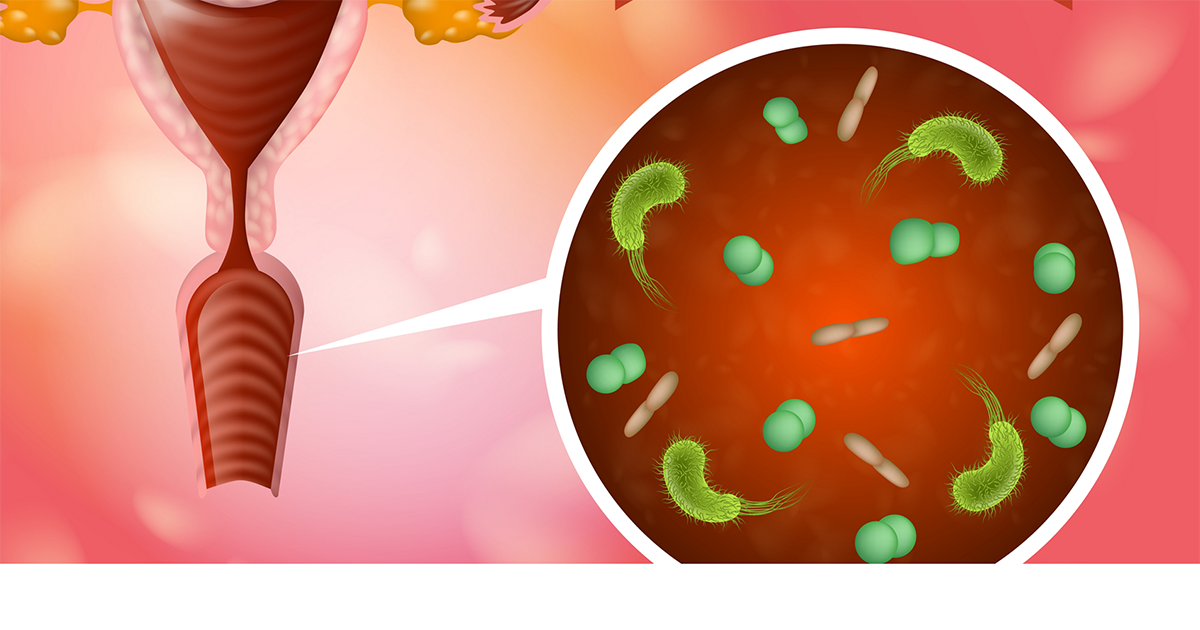If you are pregnant, you can become infected with the same sexually transmitted diseases (STDs) as women who are not pregnant. Pregnant women should ask their doctor if they want to be tested for STDs, as some doctors do not routinely perform these tests. This information sheet answers basic questions about STDs during pregnancy.
I am pregnant. Can I get an STD?
Yes, that's possible. Women who are pregnant can become infected with the same STDs as women who are not pregnant. Pregnancy does not provide women or their babies with additional protection against STDs. Many STDs are 'silent', or have no symptoms, so you may not know if you are infected. If you are pregnant, you should get tested for STDs, including HIV (the virus that causes AIDS), as part of your medical care during pregnancy. The consequences of an STD can be more serious, even life-threatening, for you and your baby if you become infected during pregnancy. It is important that you are aware of the harmful effects of STDs and how you can protect yourself and your unborn baby from infection. If you are diagnosed with an STD while pregnant, your sex partner(s) should also be tested and treated.
How can STDs affect me and my unborn baby?
STDs can complicate your pregnancy and have serious consequences for you and your baby. Some of these problems are visible at birth, others are only discovered months or years later. Moreover, it is known that someone who is infected with an STD can become infected with HIV more easily. Most of these problems can be prevented with regular medical care during pregnancy. This means that you will be tested for STDs early in pregnancy and repeated just before delivery if necessary.
Should I get tested for STDs during my pregnancy?
Yes. Testing and treating pregnant women for STDs is an important way to prevent serious health complications for both mother and child that may otherwise occur with infection. The earlier you start medical care during pregnancy, the better the health outcomes for you and your unborn baby.
Make sure you ask your doctor or Verloskundigen PuurBegin Kampen to have you tested for STDs. It's also important that you have an open and honest conversation with your obstetrician or gynecologist and discuss any symptoms you experience and any sexual risk behaviors you engage in, as some doctors do not routinely perform these tests. Even if you have been tested in the past, you should be tested again if you become pregnant.
Can I be treated for an STD while pregnant?
It depends. STDs such as chlamydia, gonorrhea, syphilis, trichomoniasis, and BV can all be treated and cured with antibiotics that are safe to take during pregnancy. STDs caused by viruses, such as genital herpes, hepatitis B or HIV, cannot be cured. However, in some cases, these infections can be treated with antiviral medications or other preventive measures to reduce the risk of passing the infection to your baby. If you are pregnant or considering becoming pregnant, you should get tested so that you can take steps to protect yourself and your baby.
How can I reduce my risk of an STD during pregnancy?
The only way to prevent STDs is to avoid vaginal, anal, or oral sex. If you are sexually active, you can do the following things to reduce your risk of chlamydia:
- Being in a long-term, mutually monogamous relationship with a partner who has been tested and has a negative STD test result
- Use latex condoms properly every time you have sex.
Sexually transmitted diseases (STDs) during pregnancy
It is possible to become infected with a sexually transmitted infection (STD) during pregnancy. Pregnant women should discuss with their doctor whether they want to be tested for STDs and STDs. Some doctors do not perform these tests.
Bacterial STDs – Infections that can be cured |
|||
|---|---|---|---|
| Infection | Risks (M=Mom; B=Baby) | Method of transfer | Therapy |
| Gonorrhea | M – Can cause ectopic pregnancies and leads to Pelvic
Inflammatory disease (PID), which can cause infertility B – Premature birth, stillbirth, eye infections |
Can move in the birth canal during delivery | M – Antibiotics approved by OB/GYN B – Antibiotics are given in the eyes to prevent infection |
| Chlamydia | M – Can cause ectopic pregnancies and lead to pelvic disorders.
Inflammatory disease (PID), which can cause infertility B – Pneumonia, eye infections, blindness |
Can enter the birth canal during delivery | M & B – Antibiotics approved by OB/GYN |
| Trichomoniasis | M – May cause damage to the fallopian tubes
B – Premature birth, low birth weight |
Can enter the birth canal during delivery | M & B – Antibiotics approved by OB/GYN |
| Bacterial vaginosis | B – Premature birth, low birth weight | Can enter the birth canal during delivery | M & B – Antibiotics approved by OB/GYN |
| Syphilis | M – Miscarriage
B – Stillbirth, congenital syphilis that can lead to mental and physical problems |
Can cross the placenta during pregnancy and can be transmitted
in the birth canal during childbirth |
M & B – Antibiotics approved by OB/GYN may be given to prevent damage to the fetus. |
Viral STDs – Infections that cannot be cured |
|||
|---|---|---|---|
| Infection | Risks (M=Mom; B=Baby) | Method of transfer | Therapy |
| Human papillomavirus (HPV) | M – Can lead to genital cancer
B – Warts may develop in the baby's throat for what purpose surgery M & B – Warts in the birth canal can cause complications during delivery |
Can move in the birth canal during delivery, but very
rare |
M & B – Wart treatment can take place during pregnancy
but must be approved by OB/GYN |
| Hepatitis B | M – Can cause significant damage to the liver
B – If the baby is not treated within an hour of birth, the baby's 90% will be a lifelong carrier. |
Can enter the birth canal during delivery | B – No cure, but can be prevented with vaccinations |
| Herpes | M – Severe breakout in the first trimester can lead to
The fetus is at higher risk for herpes during pregnancy and can lead to neonatal herpes. |
Can enter the birth canal during childbirth and rarely
can cross the placenta during pregnancy |
M – No cure, but outbreaks can be treated with oral medications
B – Treatment immediately after birth improves the chance of a healthy baby |
| Human Immunodeficiency Virus (HIV) | M & B – HIV can develop into AIDS, which is fatal | Can cross the placenta during pregnancy and can be transmitted
in the birth canal during childbirth. Also possible to transmit through breastfeeding |
M – Antiviral medication is given to reduce symptoms during pregnancy
B – Treatment during pregnancy significantly reduces the risk of transmission to the baby. |
Do you have any questions about this? Or are you unsure whether you might have an STD? Please feel free to contact Midwives Dronten.
Love,
Midwives Dronten
Address: De Barrage 97, 8252 HR Dronten
Telephone: 06 53 65 91 91










